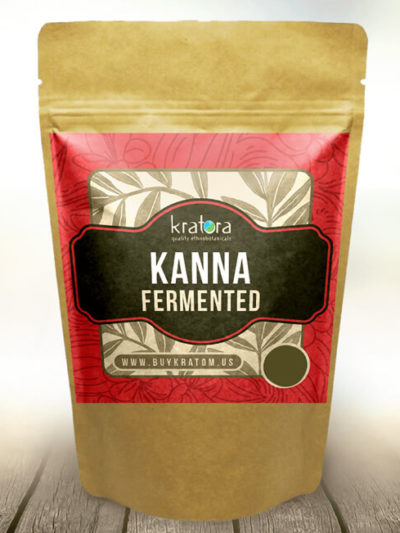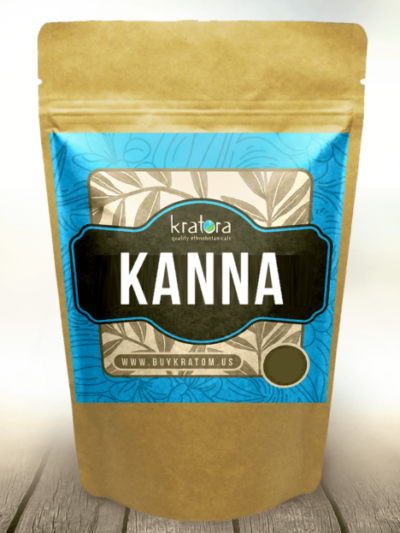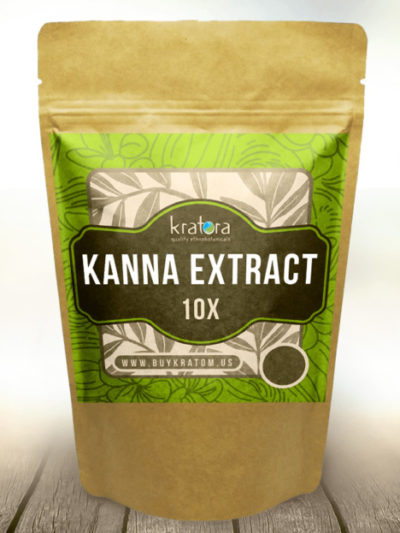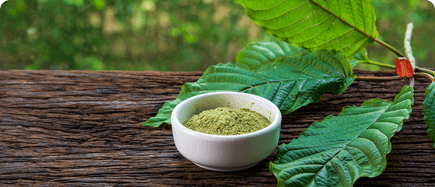For centuries, medicinal plants were used by our ancestors for everything from toothaches to insomnia, and local plant knowledge was passed down from generation to generation. Now, with the convenience of pharmaceuticals and conventional doctors, much of this knowledge is being lost.However, among those seeking to live more naturally, a renewed interest in botanical plants is bringing traditional herbs back into the public eye. And thanks to the internet and extensive global trade networks, we can now enjoy the benefits of plants from around the world—such as the kanna plant!
What Is Kanna?
What is kanna? The kanna plant or Sceletium tortuosum from South Africa is a succulent that has received special attention among those seeking relief from pain, anxiety, and those looking for a natural lift in mood. Although scientific research on the substance is scarce, we can look to the way this herb has been used in its traditional context.
For millennia, the Khoikhoi tribes have lived in South Africa—starting as hunter-gatherers and transitioning to a nomadic pastoralist lifestyle. At the time when Dutch colonists and travelers began to explore the country in the seventeenth century, they noticed that these local peoples chewed regularly on the “canna,” or kanna plant, and preserved a year’s supply at a time by bruising the roots and stems between stones and storing them in sewn-up sheepskins where they fermented.
On the Western Cape, the Sceletium tortuosum plant grew in abundance on the hills where it often appeared with another herb called “Eland.” In fact, these two plants were so often found together that one area has become known to the locals as “Channaland.”
What is Kanna Used for Traditionally?
According to anthropological studies on kanna, it appears that the kanna plant was used to satisfy both thirst and hunger, to fight fatigue, and also had a role in traditional medicinal, social, and spiritual practices. In fact, the kanna herb was so highly prized that it was used by the Khoikhoi as a kind of currency with which to barter for cattle and other commodities. By the mid-nineteenth century, kanna was sold in centers around the country and was considered a general remedy for adult insomnia and diarrhea in children.
What is Kanna Used for by Non-Traditional Peoples?
After nearly four centuries of mixing between indigenous and non-indigenous peoples in South Africa, the kanna plant has come to play an important role in the society as a whole and is known by the nicknames of “kuogoed” and “channa.”
In South Africa today, kanna is sold in the form of a powder, whole fermented leaf, spray, capsules, liquid extract, and snuff. The plant is cultivated in South African nurseries—as the wild supply has diminished due to overharvesting, disease, and environmental changes. It is also possible to buy kanna around the world via online shops.
In recent years, Kanna has gained popularity beyond its traditional roots, with non-traditional users in various parts of the world exploring its benefits. Modern use of Kanna primarily focuses on its mood-enhancing and calming properties. Many people use Kanna to alleviate stress, thanks to its ability to modulate the serotonin system, which plays a crucial role in mood regulation.
Kanna is also commonly used as a botanical to boost cognitive function and enhance mental clarity. Some users report improved focus, increased concentration, and enhanced cognitive performance, making it a popular choice among students and professionals seeking a natural nootropic. Additionally, Kanna’s ability to promote relaxation and reduce unease has made it a favored botanical among those looking for a natural way to manage social interactions and improve overall well-being. Unlike traditional applications, modern usage often involves standardized extracts, capsules, or powdered forms, allowing for more precise amount and consistent effects.
Potential Benefits of Kanna
Kanna offers several potential benefits, primarily due to its interaction with the brain’s neurotransmitters, particularly serotonin. Some of the most commonly reported benefits include:
- Mood Enhancement: Kanna is often used to elevate mood and create a sense of calm and well-being. This effect is primarily due to its influence on the serotonin system, which is crucial for regulating mood and emotional balance.
- Stress Relief: Many users turn to Kanna for its calming effects, which can help reduce feelings of stress and discomfort. he plant can provide a sense of relaxation without the sedation commonly associated with pharmaceutical options.
- Cognitive Function and Focus: Some studies and anecdotal reports suggest that Kanna can enhance cognitive function, improve focus, and support memory retention. This makes it an appealing option for those looking to boost mental performance naturally.
- Appetite Suppression: Traditionally, Kanna was used to suppress hunger and thirst during long journeys. Modern users sometimes take advantage of this property to support weight management or intermittent fasting regimens.
- Social Interaction and Communication: Kanna may promote more open and relaxed social interactions, making it a potential tool for individuals looking to reduce unease and improve their comfort in social settings.
What the Research Says About Kanna
So far, there have been a few studies conducted on Sceletium tortuosum that have sought to isolate the active compounds and determine the usefulness of the kanna plant in conventional medicine.
Alkaloids in Sceletium Tortuosum
The first alkaloid that was isolated from the kanna herb was mesembrine in 1898. However, when fermented, kanna actually has higher levels of mesembrenone. Variations between kanna batches and preparation methods (fresh or fermented) have made it difficult to determine the exact alkaloid composition of kanna. So far, 31 alkaloids have been identified in the plant, including:
- Mesembrin(e)
- Mesembrenon(e)
- Mesembrenol
- Mesembranol
- Tortusamine
In 2001, a patent was taken out on a kanna plant extract containing the first three of these alkaloids. This standardized kanna extract was then launched as a prescription medicine by HG&H Pharmaceuticals in 2012 under the name of Zembrin®. Zembrin is currently being promoted as an anxiety-reducing and cognitive-enhancing drug for healthy people.
In response to concerns from the local San population about kanna being exploited for foreign gain, some companies have agreed to return part of the profit from kanna-product sales to the local population.
What is Kanna Useful for?
So far, research on the kanna plant has focused on its cognitive and mood-boosting properties.
- Anxiolytic
A 2013 study on Zembrin (as a standardized kanna extract) indicated that the kanna herb might have potential as an anxiolytic (anti-anxiety) due to reduced amygdala reactivity and amygdala-hypothalamus coupling after a single 25mg dose of Zembrin. - Cognitive Enhancer
A 2014 proof-of-concept study examined the effect of kanna extract (Zembrin) on Phosphodiesterase-4 in “cognitively healthy subjects.” The researchers found that a daily 25mg dose of Zembrin improved cognitive set flexibility significantly when compared to a placebo. The subjects also reported improved mood and better sleep.
It is important to note that kanna interacts with selective serotonin reuptake inhibitors (SSRIs) and MAO inhibitors, and can cause harm if combined with these substances.
Shop All-Natural Kanna at Kratora
If you’re keen to gain access to the kanna plant, you can find all-natural, ethically-sourced kanna in our collection of kratom alternatives. In our premium collection, we sell kanna in three different presentations: Kanna powder, Fermented kanna, and Kanna extract 10X.
-
Body and Mind
Fermented Kanna (Sceletium Tortuosum)
From $7.99 Shop Now This product has multiple variants. The options may be chosen on the product page -
Body and Mind
Kanna (Sceletium Tortuosum)
From $7.99 Shop Now This product has multiple variants. The options may be chosen on the product page -
Body and Mind
Kanna Extract 10x
From $39.99 Shop Now This product has multiple variants. The options may be chosen on the product page
What is the strength of our kanna extract? While the 10X extract might sound like it is ten times stronger than the regular powder, this number actually refers to the amount of plant material that is concentrated down into the final product and may not be reflected in the final strength.
As always, please contact us with any questions about your order or request a free kanna plant product sample when you place your order. Shop with us today to receive same-day shipping on orders submitted before 3 PM EST Monday through Friday and 1 PM EST on Saturdays (excluding holidays).
Please note that none of the products sold on our website are intended to diagnose, treat, cure, or prevent any disease or medical condition.
Please note that the US FDA has not approved this product to be sold for human consumption, sold for external use only. None of the products sold on our website are intended to diagnose, treat, cure, or prevent any disease or medical condition.
Want to learn more about kratom quality and value? Start here:
Why Buying Cheap Kratom Can Be Dangerous






